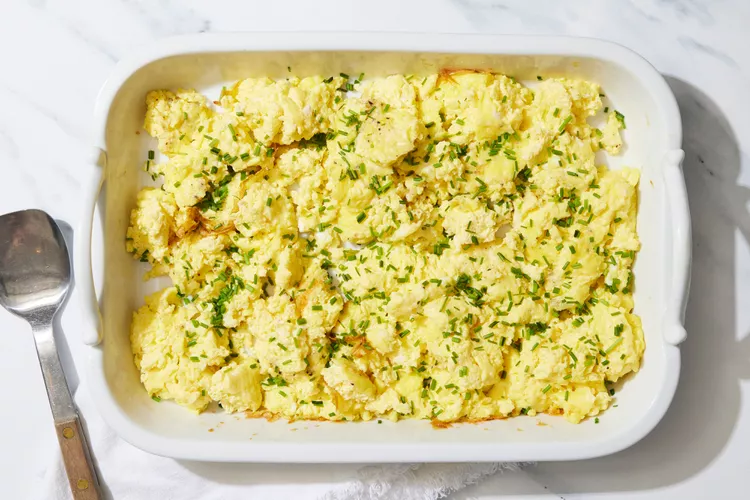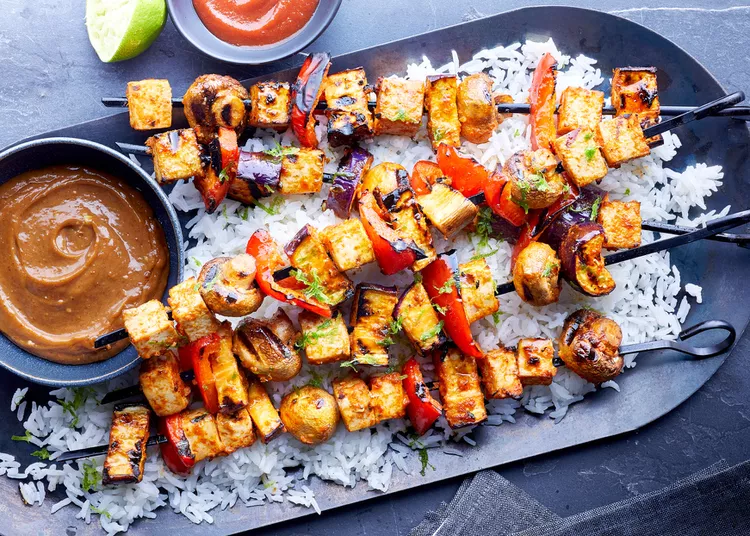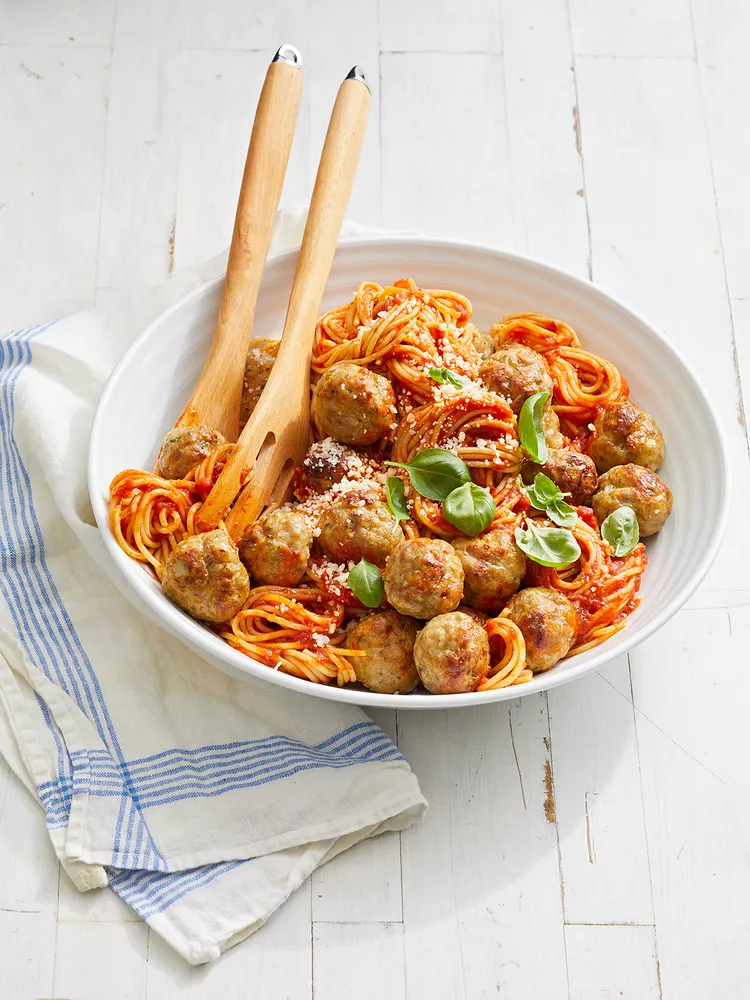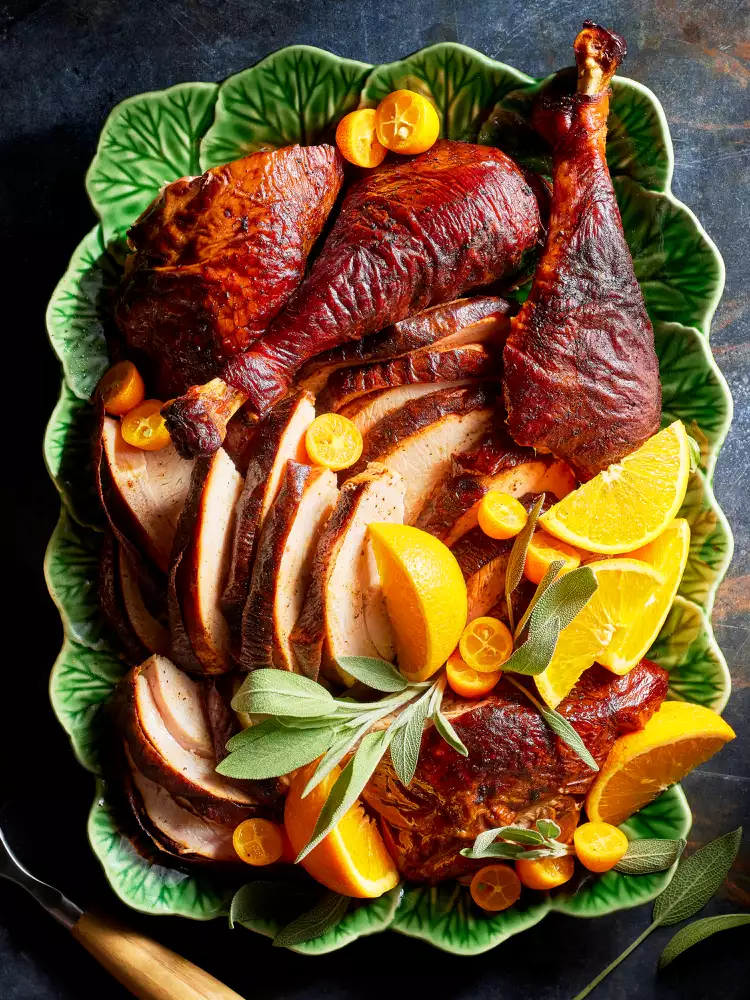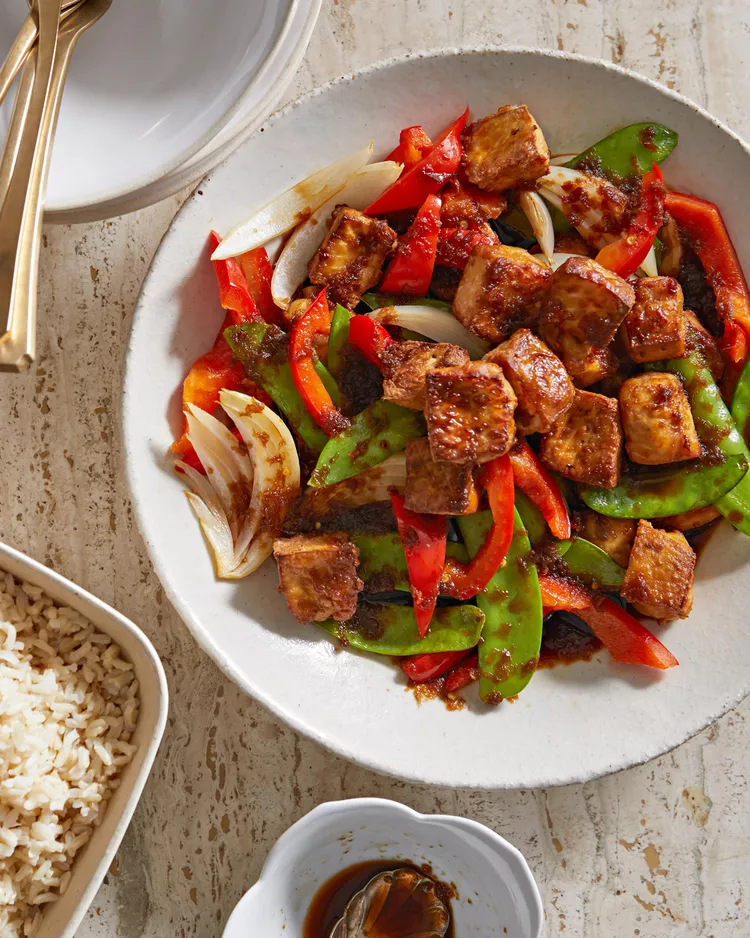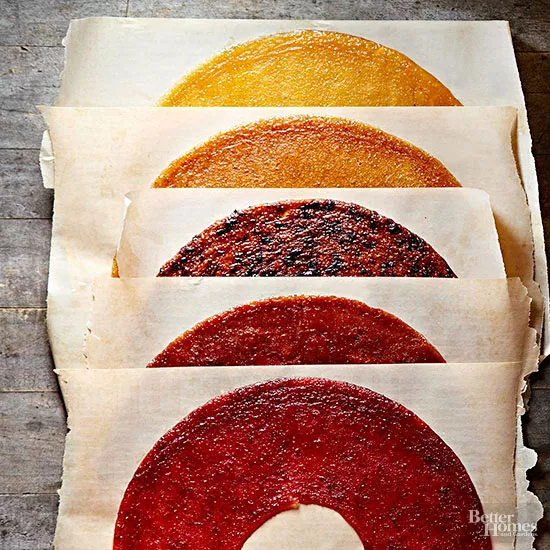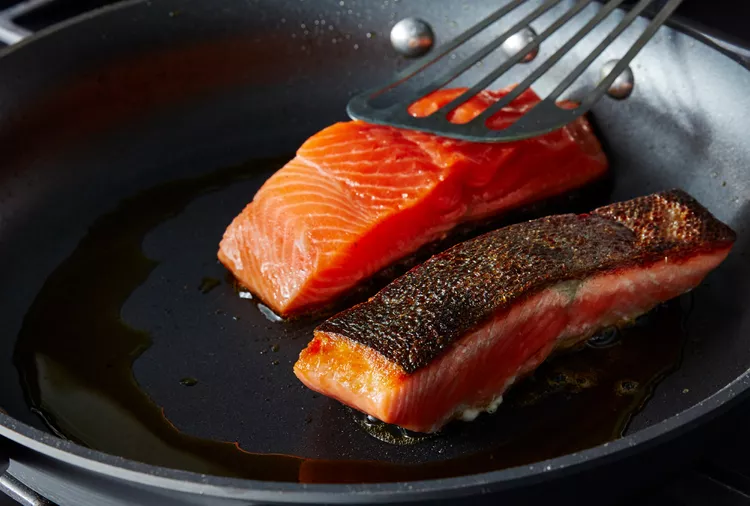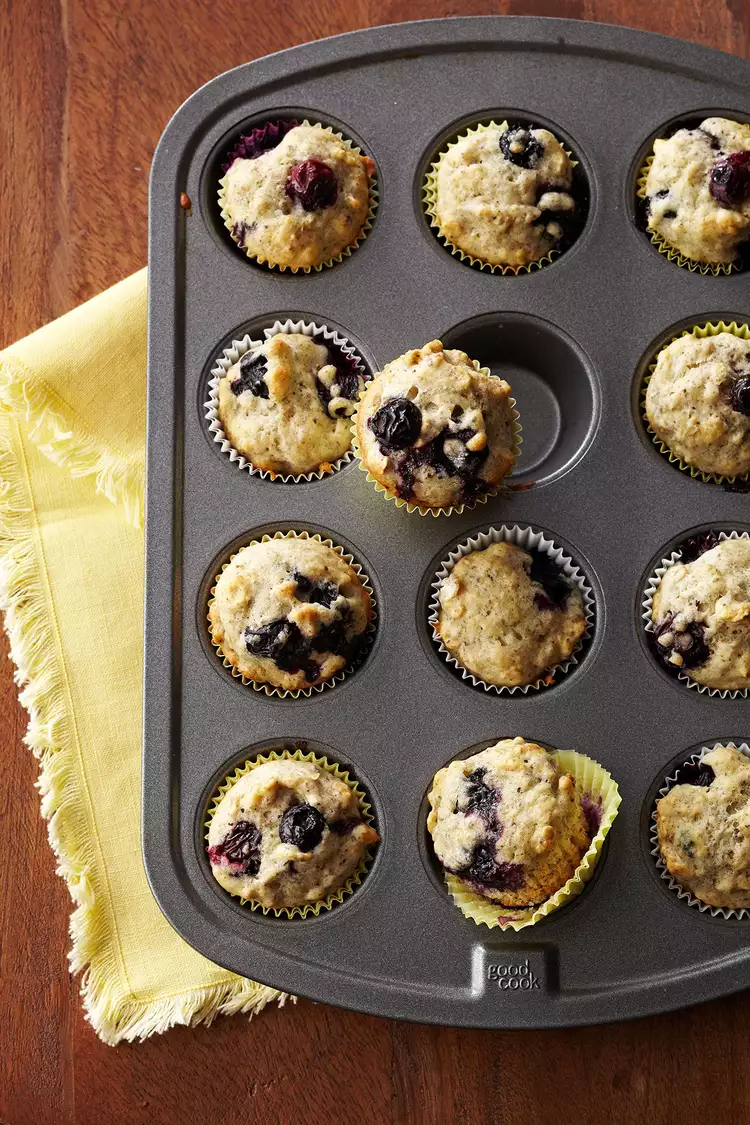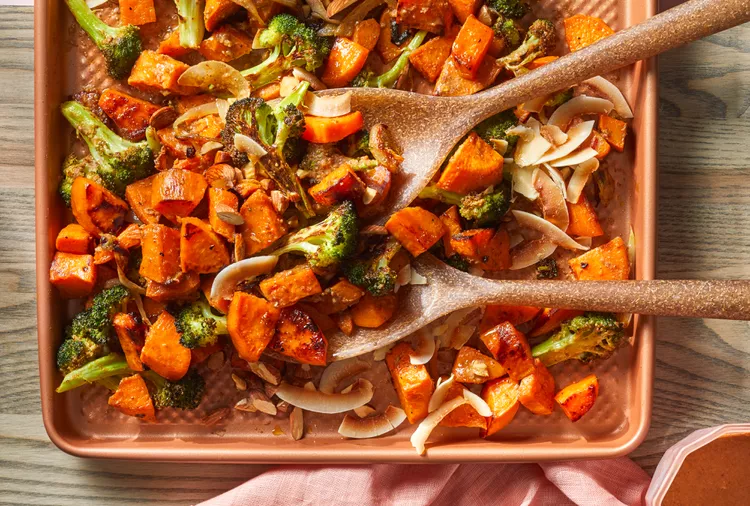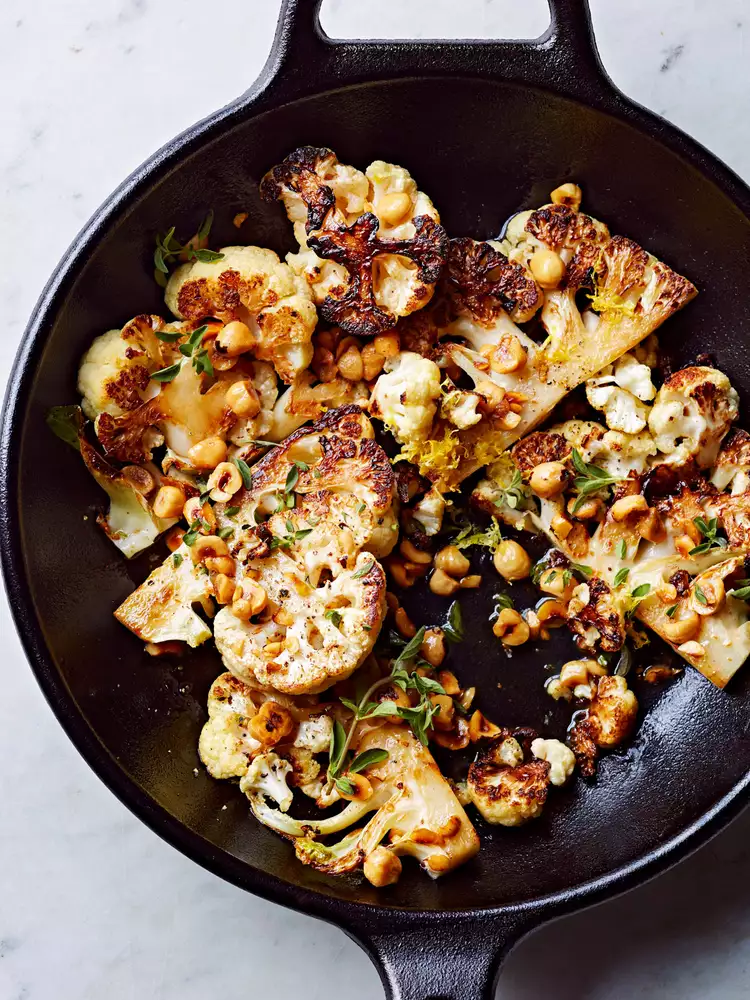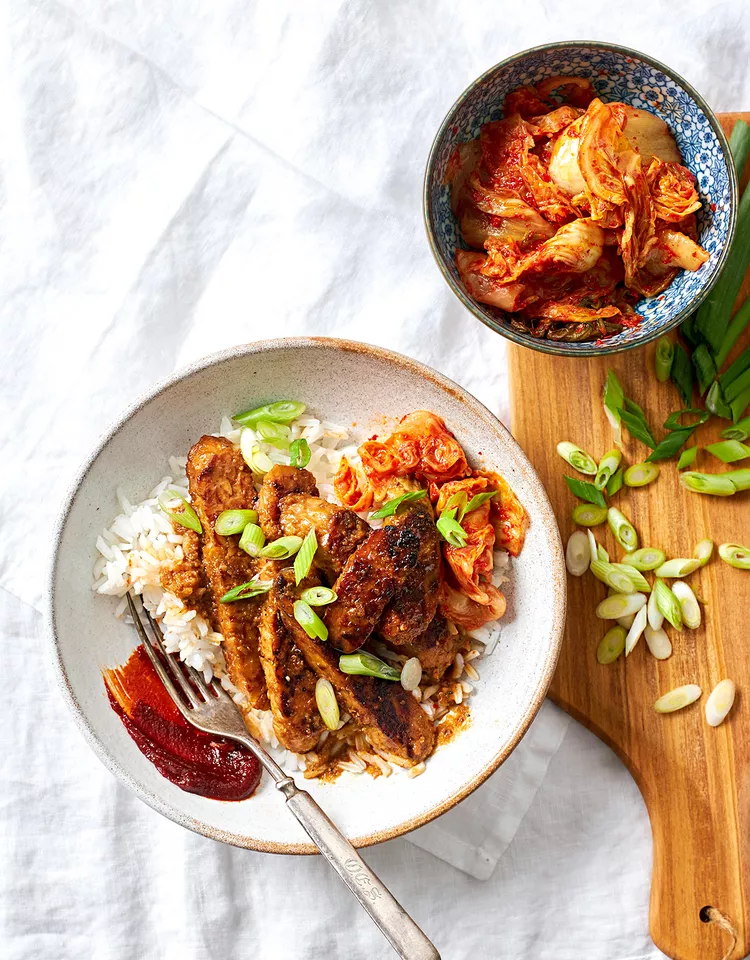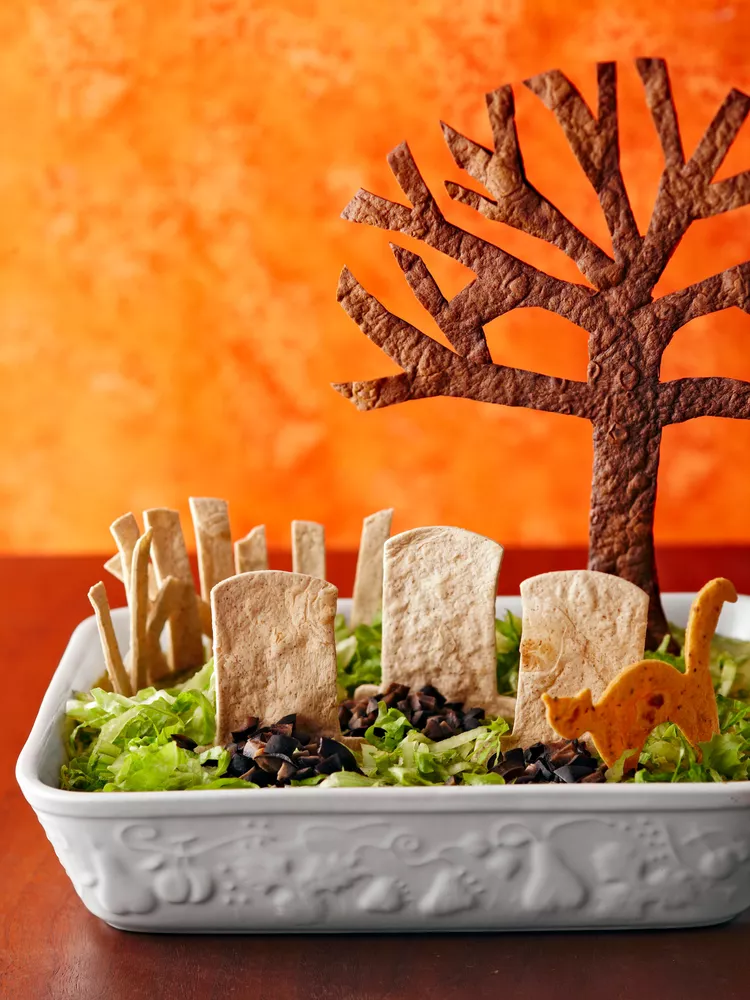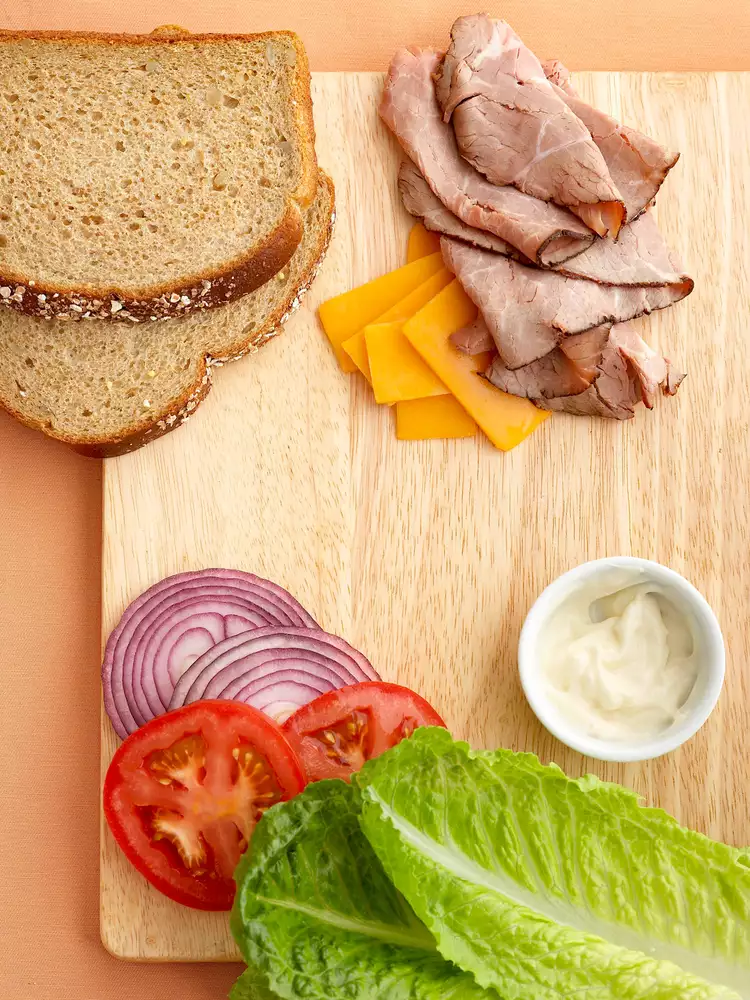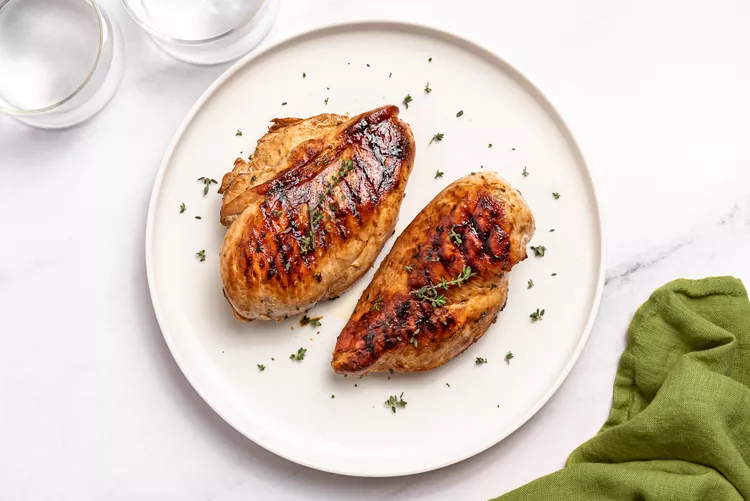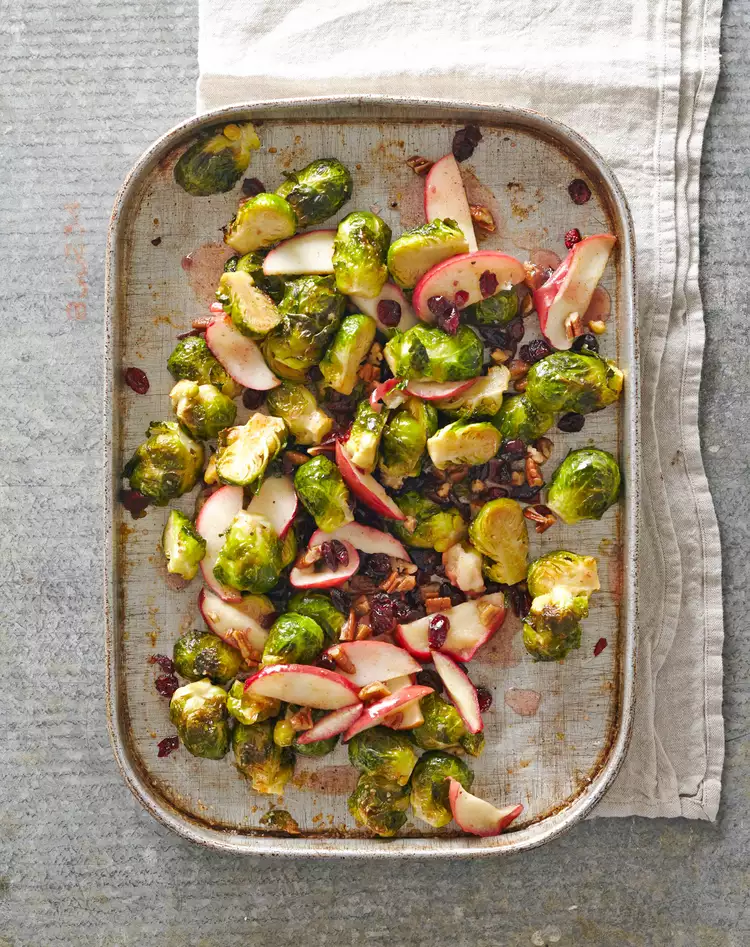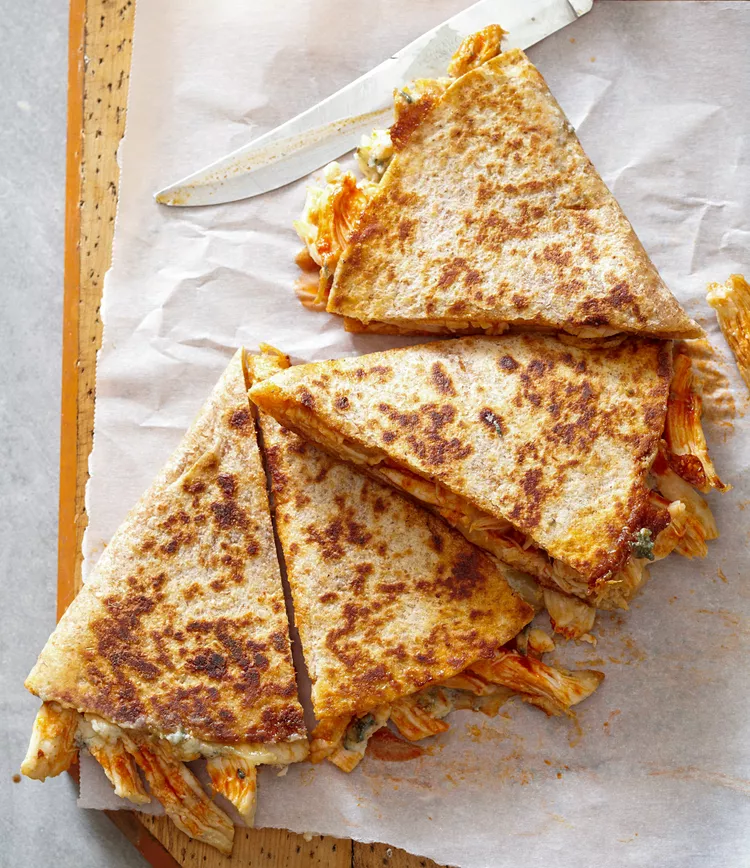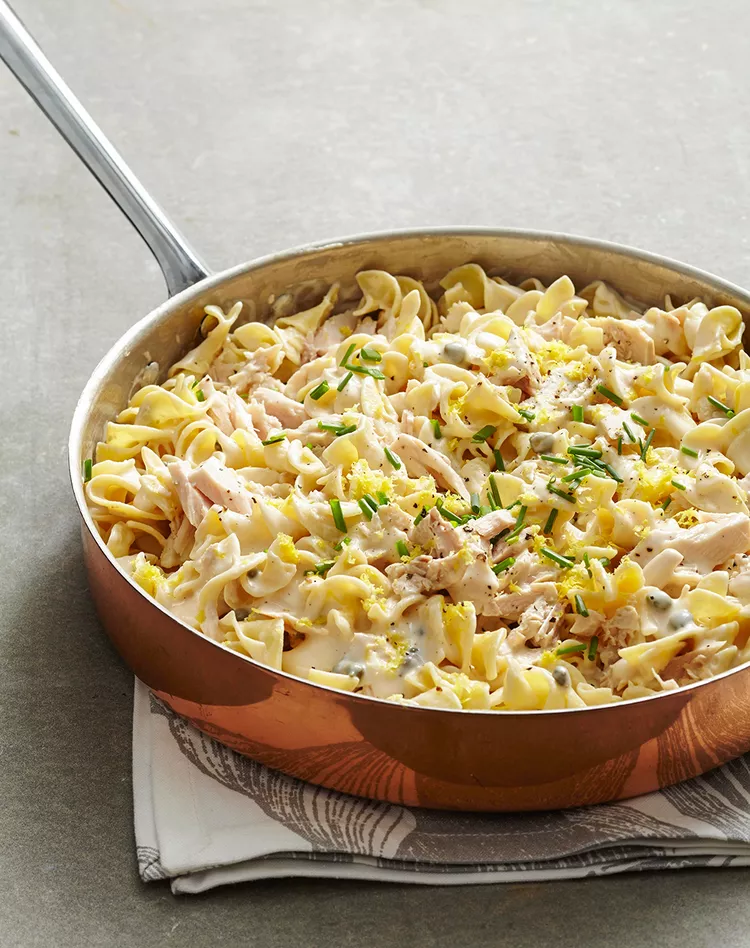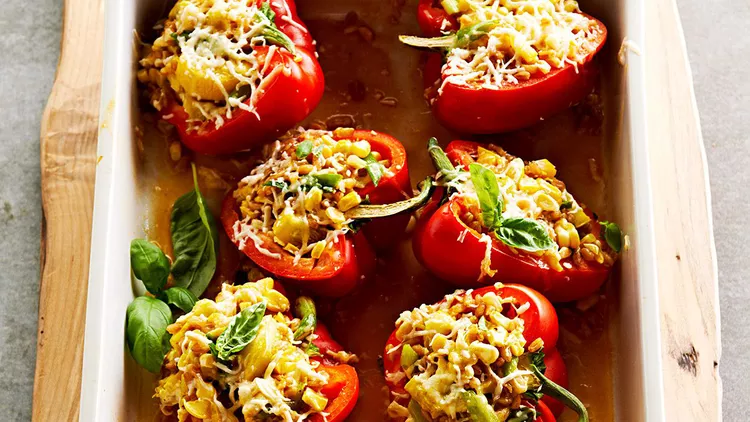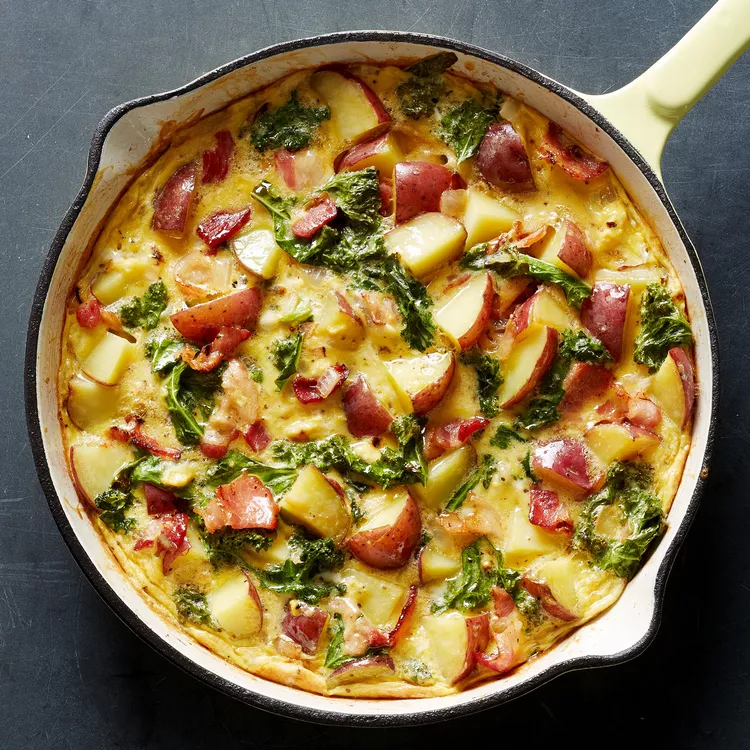We had a lot of questions when we heard about making scrambled eggs in the oven. How does the recipe work? Are they good? What's the texture like? In search of answers, we put the recipe to the test in our Test Kitchen and found that not only were they good, they were pretty much foolproof to make. We found the key to fluffy baked scrambled eggs is gently stirring them part way through cooking. Read on for exactly how to make scrambled eggs in the oven, including tips for storing and serving.
How to Make Oven-Baked Scrambled Eggs
Making scrambled eggs in the oven is quite simple. First, pour melted butter into a baking dish. Whisk together a dozen eggs with milk and season with salt and pepper. Pour the eggs into the buttered dish and bake. Once out of the oven, fluff the eggs with a fork.
Tips for Making Scrambled Eggs in the Oven
There are a few things that will set you up for success when making scrambled eggs in the oven.
- Cooking Time: According to the American Egg Board, the eggs will continue cooking when they are removed from the oven. Our Test Kitchen found that 20-25 minutes was ideal cooking time.
- Add Milk and Butter: Just a cup of milk per dozen eggs helps the eggs become fluffy while melted butter in the baking dish adds richness.
- Serve Warm: If you're not using the finished eggs for meal prepping, enjoy them warm from the oven for the best flavor and texture.
- Add Toppings: Here we're topping them with chopped chives, but you could easily customize them with cheese, pesto, or your favorite seasoning blend.
How to Use Baked Scrambled Eggs
There are so many ways to use this scrambled egg recipe. As our recipe testers tried them, several swapped ideas on how they would use them.
- Sandwiches: Swap in scrambled eggs for fried or baked in your next breakfast sandwich recipe. Try this fan-favorite Ham and Egg Breakfast Sandwich.
- Skillets: Add protein and fiber to breakfast by serving up this tasty Harissa-Sauced Chickpeas with Scrambled Eggs. When the scrambled eggs are baking, prep the rest of the recipe including the spicy harissa-based sauce.
- Meal Prep: Making a pan of baked scrambled eggs for the week is a meal prep must. Store them in containers for a quick on-the-go breakfast or add them to breakfast burritos, wraps, and sandwiches.
- Entertaining: There's no need to stand over the stove stirring scrambled eggs when you have guests. Once the pan is in the oven, it's a nearly hands-free way to make fluffy and delicious scrambled eggs for a crowd.
How to Store Baked Scrambled Eggs
The FDA recommends storing scrambled eggs for no longer than 3-4 days. Store any leftovers in an airtight container in the fridge and be sure to use them within 3 days. If they look or smell off, toss any leftovers.
Can You Freeze Baked Scrambled Eggs?
Yes, you can freeze baked scrambled eggs. Simply let them cool completely before packing them in a labeled freezer-safe container for up to 3 months.
Ingredients
-
1/4 cup butter, melted
-
12 large eggs
-
1 cup milk
-
1/4 teaspoon salt
-
1/4 teaspoon ground black pepper
-
2 tablespoons chopped fresh chives (optional)
Directions
-
Preheat oven to 350ºF. In a 3-qt. rectangular baking dish, pour melted butter.
-
Add eggs, milk, salt, and pepper to the baking dish; whisk together. Bake 15 minutes.
-
Stir and bake 5 to 8 minutes more or until the eggs are set and cooked through (check closely as the mixture quickly goes from liquidy to overdone).
-
Fluff with a fork. Top with chives and serve warm.
Nutrition Facts (per serving)
| 231 | Calories |
| 18g | Fat |
| 3g | Carbs |
| 14g | Protein |
| Nutrition Facts | |
|---|---|
| Servings Per Recipe 6 | |
| Calories 231.4 | |
| % Daily Value * | |
| Total Fat 18g | 23% |
| Saturated Fat 8.5g | 42% |
| Cholesterol 395.6mg | 132% |
| Sodium 310.1mg | 13% |
| Total Carbohydrate 2.7g | 1% |
| Dietary Fiber 0g | 0% |
| Total Sugars 2.4g | |
| Protein 14g | 28% |
| Vitamin D 2.5mcg | 12% |
| Vitamin C 0.1mg | 0% |
| Calcium 107.5mg | 8% |
| Iron 1.8mg | 10% |
| Potassium 198.4mg | 4% |
| Fatty acids, total trans 0.4g | |
| Vitamin D 101.9IU | |
| Alanine 0.8g | |
| Arginine 0.9g | |
| Ash 1.8g | |
| Aspartic acid 1.5g | |
| Caffeine 0mg | |
| Carotene, alpha 0mcg | |
| Choline, total 302.3mg | |
| Copper, Cu 0.1mg | |
| Cystine 0.3g | |
| Energy 969kJ | |
| Fluoride, F 2.8mcg | |
| Folate, total 49.3mcg | |
| Glutamic acid 2g | |
| Glycine 0.5g | |
| Histidine 0.4g | |
| Isoleucine 0.7g | |
| Leucine 1.2g | |
| Lysine 1g | |
| Methionine 0.4g | |
| Magnesium, Mg 16.8mg | |
| Manganese, Mn 0mg | |
| Niacin 0.1mg | |
| Phosphorus, P 237.8mg | |
| Pantothenic acid 1.7mg | |
| Phenylalanine 0.8g | |
| Phytosterols 0.1mg | |
| Proline 0.7g | |
| Retinol 245.8mcg | |
| Selenium, Se 31.8mcg | |
| Serine 1.1g | |
| Theobromine 0mg | |
| Threonine 0.6g | |
| Vitamin E (alpha-tocopherol) 1.3mg | |
| Tryptophan 0.2g | |
| Tyrosine 0.6g | |
| Valine 1g | |
| Vitamin A, IU 854.1IU | |
| Vitamin A, RAE 247.1mcg | |
| Vitamin B-12 1.1mcg | |
| Vitamin B-6 0.2mg | |
| Vitamin K (phylloquinone) 1.2mcg | |
| Water 113.9g | |
| Zinc, Zn 1.5mg | |
*The % Daily Value (DV) tells you how much a nutrient in a food serving contributes to a daily diet. 2,000 calories a day is used for general nutrition advice.
